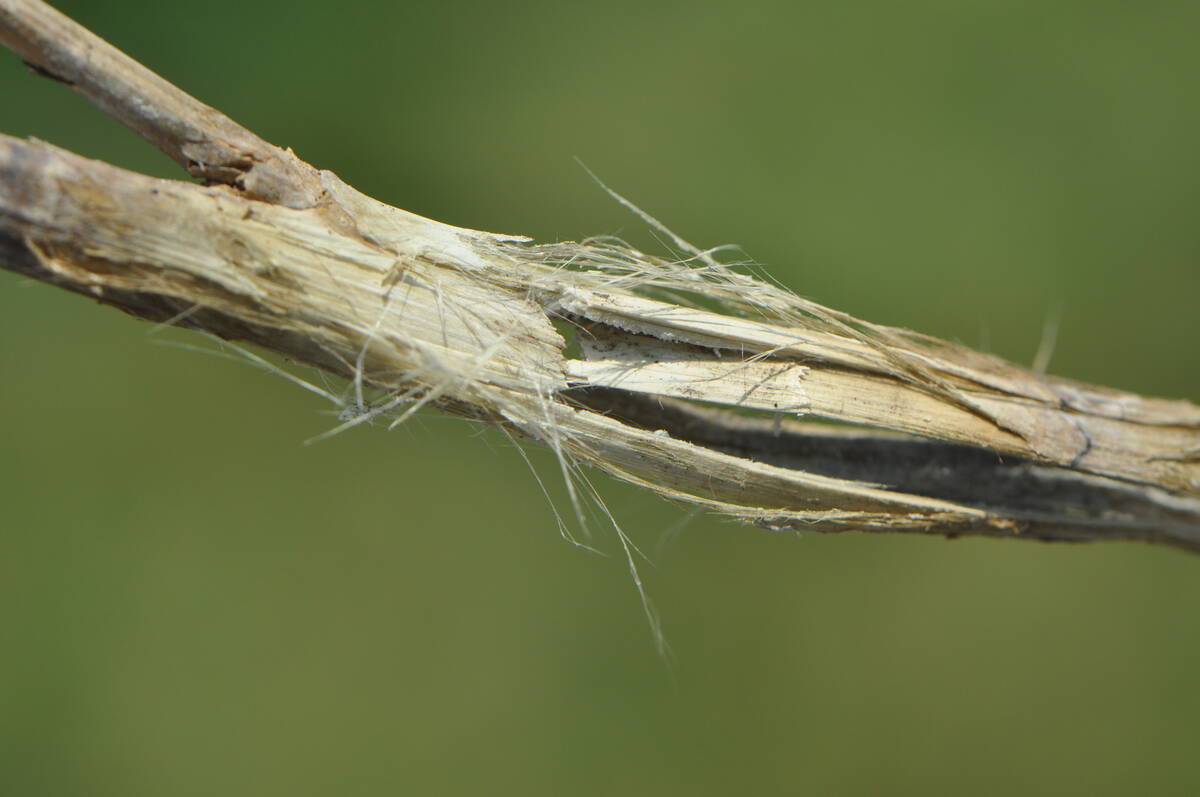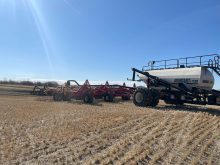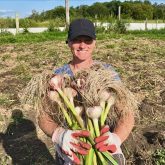Viterra Inc. posted a small fourth-quarter loss Jan. 21 as the top Canadian grain handler grappled with weak fertilizer margins and declining commodity prices, dashing expectations of a modest profit.
For the three months ended Oct. 31, Viterra posted a loss of $920,000, or nil per share, compared with net income of $46.8 million, or 20 Canadian cents a share, a year earlier.
The company said sales and other operating revenue fell 17 per cent to $1.42 billion, due to significant decline in commodity prices.
Analysts, on average, had expected Viterra to report earnings per share of seven cents on revenue of $1.64 billion, according to Thomson Reuters.
Read Also

Manitoba sclerotinia picture mixed for 2025
Variations in weather and crop development in this year’s Manitoba canola fields make blanket sclerotinia outlooks hard to pin down
Viterra is forecasting a margin of $30 to $33 per tonne of grain in 2010, compared with $25.38 in 2009.
The company was expected to post weaker results than a year earlier because grain prices have pulled back from record highs and farmers have been holding off on applying fertilizer.
The outlook is brighter for 2010, chief dxecutive Mayo Schmidt said. South Australian and Canadian farmers harvested big crops and should resume normal buying of fertilizer, he said.
The earnings include five weeks of results from ABB Grain, the Australian grain handler that Viterra bought in September. Australian operations also weighed on the quarterly results, posting a net loss of $6.2 million, which the company said reflected the seasonally slow pre-harvest period.
Viterra said that it intended to reduce the short-term debt of its Australian operations by $300 million by the end of this month to lower its interest expenses.
Despite paying down its Australian debt, Viterra still has $800 million available for further acquisitions.
Restrictions by China and the United States on Canadian canola imports and European concerns about flax shipments also affected the fourth-quarter performance, Schmidt said.
“It certainly has impacted the performance when you consider that Viterra had an experience of as high as 60, or north of 60, per cent of the canola sales into China,” he said.
“The main catalyst to overcoming (restrictions) is, regardless of whether it’s a food or a feed operation, we run it like it is a food operation,” Schmidt said.


















